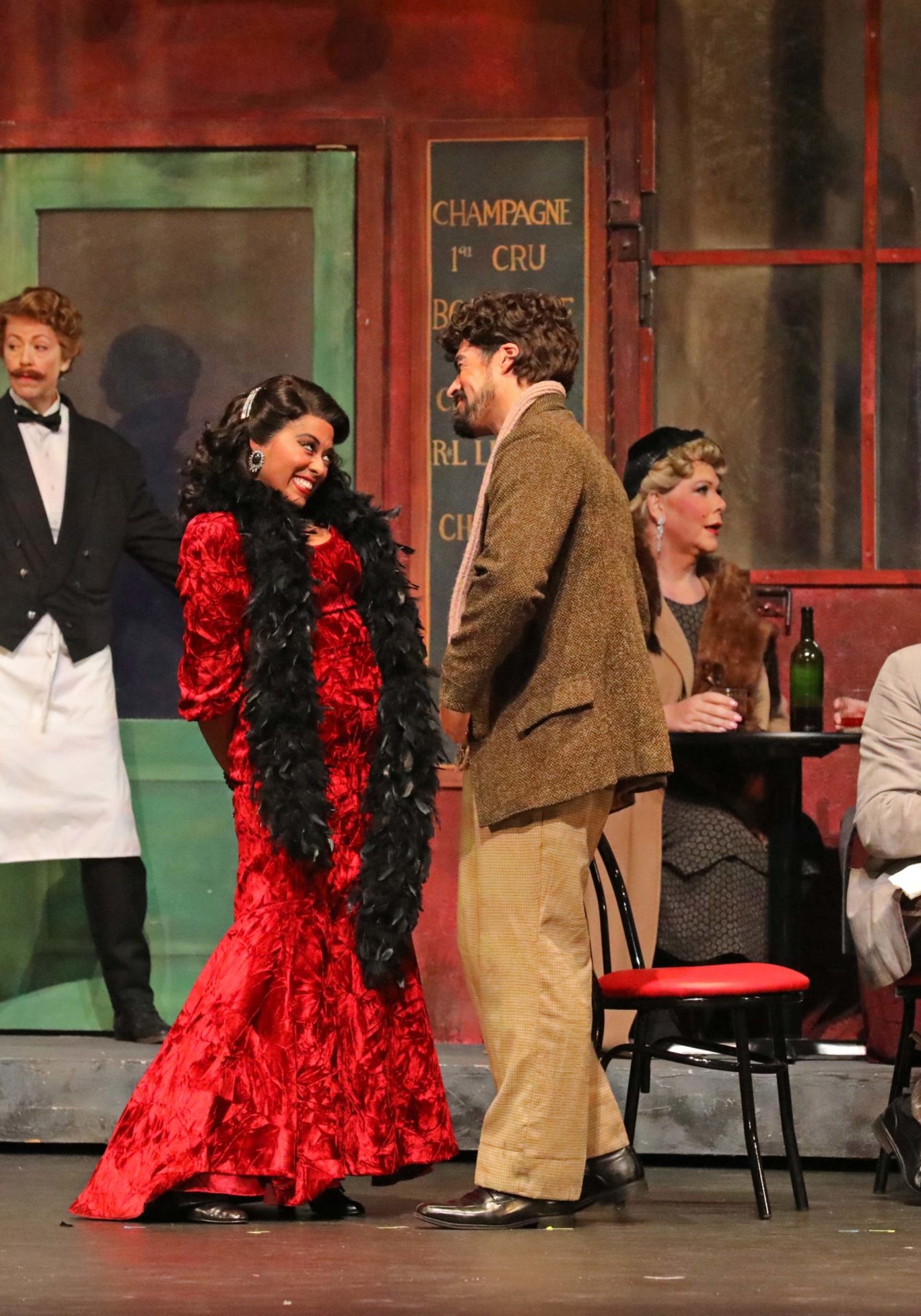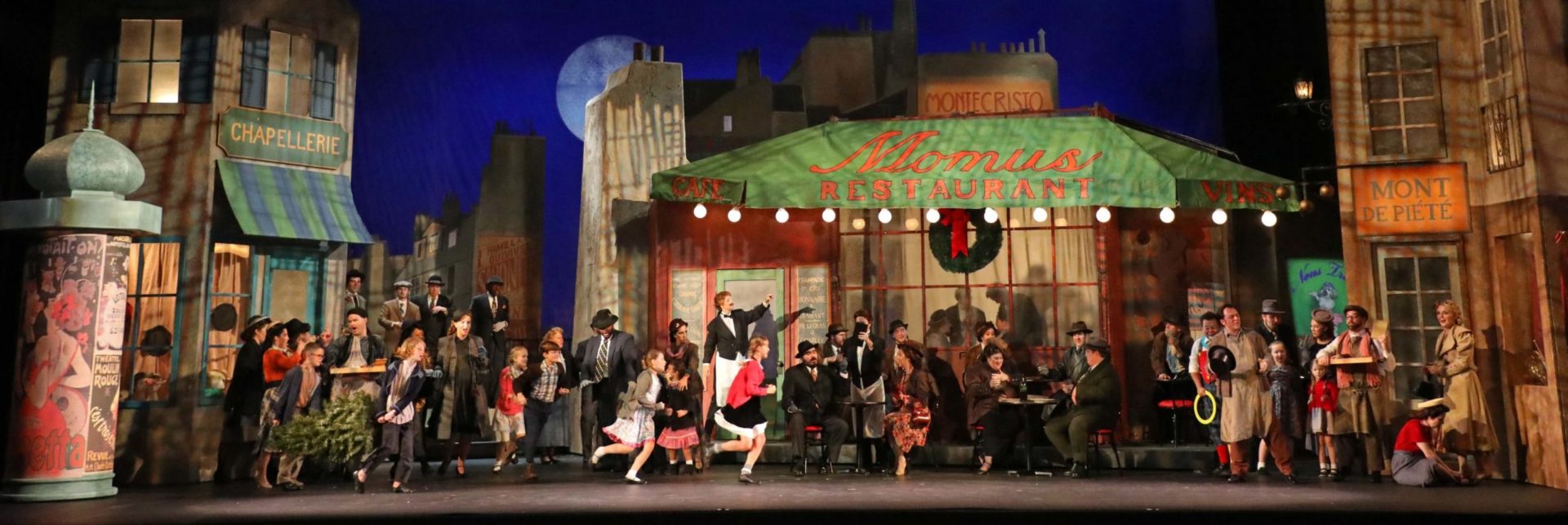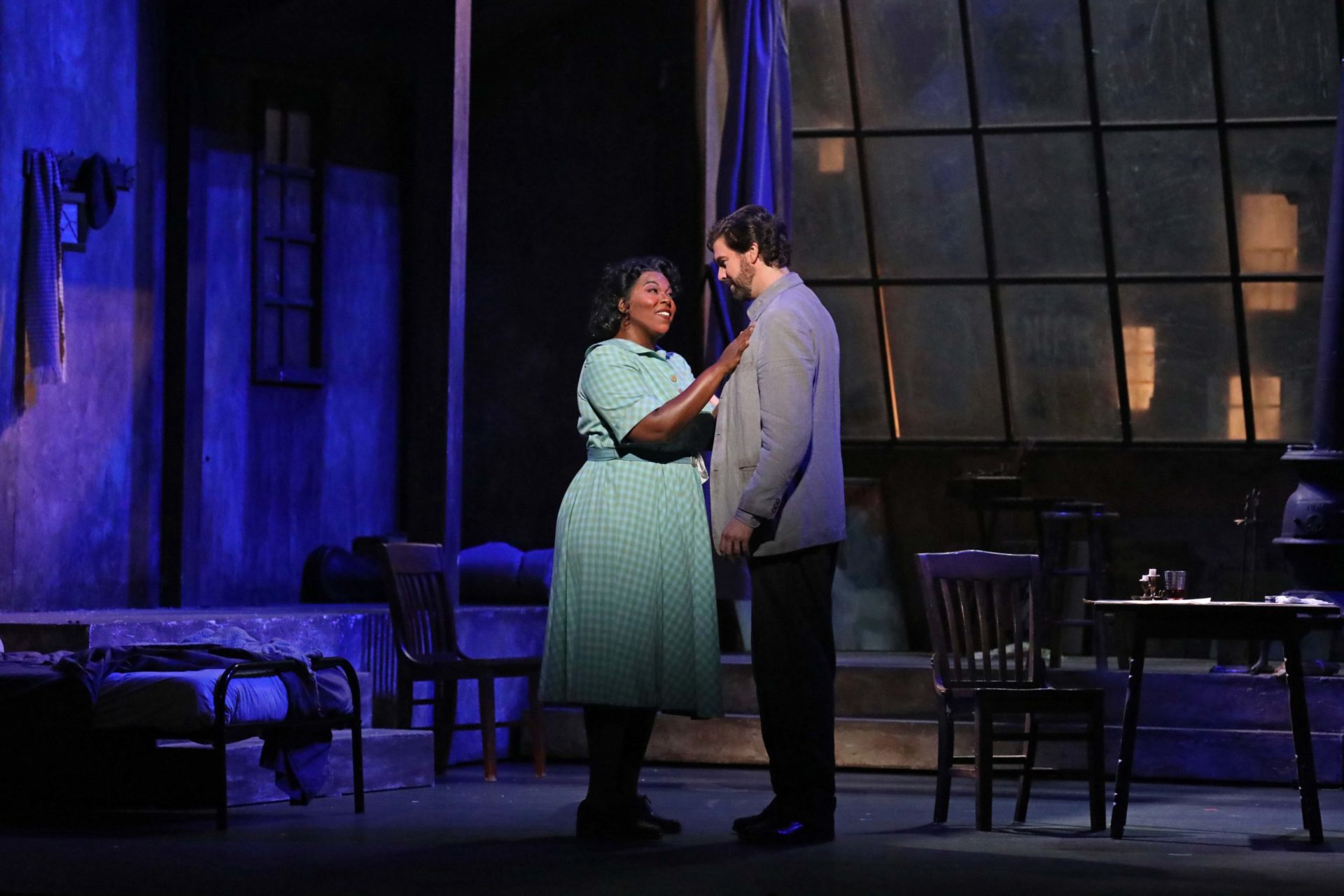At TPAC's Jackson Hall
Nashville Opera’s Remarkable La Bohème
On September 22 and 24 Nashville Opera opened its 2022-2023 season with a remarkable production of Giacomo Puccini’s La Bohème. Puccini’s opera is a deeply tragic work and a centerpiece of late 19th Century Italian opera– it is a singer’s opera containing some of the most important arias in the repertoire, but in Nashville the ensembles were amazing too.

The ensemble fun began right in the opening act, with the four Bohemian artists, Colline (Allen Michael Jones, Bass), Schaunard (Spencer Reichman, Baritone), Marcello (Luis Orozco, Baritone) and Rodolfo (Zach Borichevsky, Tenor) singing the opening ensemble with fantastic levity and wonderful group dynamic. When they all gang up on a laughably aging landlord Benoit (Mark Whatley, Baritone, doubled as Alcindoro) for his lecherous ways, it was intimate and silly like an old sitcom (think Friends).
Orozco’s Marcello was particularly notable in that his smooth-talking seductive presence was well expressed in an equally smooth legato melodic line as he sidled up to his on-again off-again love interest, the fetching opportunist Musetta (Flora Hawk, Soprano). Hawk’s second act waltz, “Quando me’n vo’” bristled with more than enough charismatic confidence and passion of youth to win Marcello’s heart…again and make her stand out from a huge stage chock full of people. Here as always, Amy Tate Williams prepared an immaculate chorus including a remarkable children’s chorus. As the comic foil and the fun couple to watch, Hawk and Orozco perfectly balanced the tragedy of Borichevsky’s Rodolfo and Mimi (Michelle Johnson, Soprano).
At the opening of Act 1, on Saturday at least, Borichevsky’s instrument seemed a little cool, particularly against the glossy song of Reichman and Jones, or perhaps he was just waiting for his muse. By the duet with Mimi at the Act’s end, his tenor had a magical brilliance that brought goosebumps. For her part, Johnson’s Mimi was just lovely, and her gentle instrument perfect for the part: clear, crisp, clean and honeyed but with a delicate articulation like the fine fabric that her character spent her days embroidering. The famous quartet, or better described as a “double duet,” “Addio dolce svegliare alla mattina!” at the end of Act Three was equally silly and enchanting, a gorgeous highlight of the evening.
The production brought back Peter Harrison’s traditional and beautiful Paris setting from 2014. Lacking the 400-foot tall lcd screens and Nashville-cum-Marvel Superhero™ costumes, the staging was quite lovely—indeed, the second act was greeted with boisterous applause as the curtain went up, before a single note was sung. It is a marvelous setting, where subtle things count, e.g. first and last acts feature the contemptable bed where the tragedy ensues, the broad exposition pointing towards its own destiny in the recapitulation.


Perhaps because of his proximity to the verismo movement, whether it be Butterfly, Tosca, or even Turandot, some of Puccini’s most famous works are at best crude catharsis and at worst grief porn, especially in this not-quite-post-pandemic era. In the score there is certainly expressed musical, motivic and emotional relish lent to the approaching tragedy, a relish that Maestro Dean Williamson brought to devastating light from the score’s giant, anti-heroic, symphonic/sonata form. Whatever the cause, when Rudolpho stumbled around the stage in that brief moment of silence, when everyone on the stage and in the hall (except him) had realized Mimi was dead, I chanced to glance around at the room full of eyes welled with emotion—a response so much more important than the ovation that soon shook Jackson Hall. Bravo.
Nashville Opera returns October 28-30 with The Medium at the Noah Liff Opera Center.



